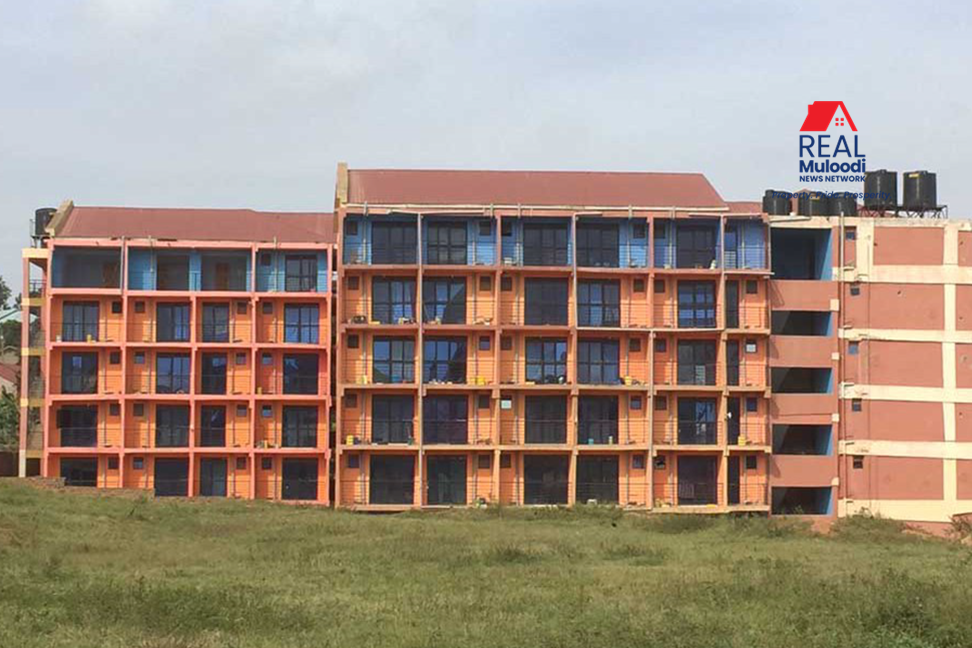UGANDA, Kampala | Real Muloodi News | Hostel investment is emerging as a key driver in Uganda’s real estate sector. It offers promising returns on student accommodation, elderly care homes, and high-grade residential apartments for expatriates in the oil and gas industry.
Despite high interest rates, local and foreign investors are exploring opportunities in these sectors due to the increasing demand.
According to the Uganda Bureau of Statistics (UBOS), local universities account for over 70% of student enrollment in tertiary institutions, creating a substantial need for student housing and related services.
Moses Dennis Lutalo, Managing Director at Broll Uganda, a commercial real estate agency, confirmed a surge in inquiries from private equity firms.
“We have received fresh inquiries from foreign private equity firms about hostel investment opportunities available in Uganda. Some projects with over 2,000-bed capacity and optimal utility services are already underway, with four more in the pipeline,” Lutalo said.
Uganda’s tertiary education institutions, including vocational schools, medical colleges, and universities, have an estimated student population exceeding 300,000.
Enrollment growth is fueled by private universities, higher admission rates, and foreign students from Kenya, Rwanda, South Sudan, the Democratic Republic of Congo, Somalia, Nigeria, and Comoros.
UBOS data shows that student enrollment in Ugandan universities rose from 140,107 in 2013 to 180,360 in 2014, reaching 186,412 in 2016. This growth has increased demand for hostel investment to accommodate students efficiently.
In addition to student housing, investors are eyeing elderly care homes.
Lutalo noted that “investors are interested in sophisticated elderly care homes in upcountry towns, targeting the growing elderly population in need of specialised care.”
UBOS reported that Uganda’s elderly population was around 4 million in 2020, slightly declining to 3.7 million in 2021 but stabilising at 3.8 million in 2022 and 2023.
High-grade residential apartments for oil and gas expatriates also present lucrative hostel investment opportunities.
“Oil field service companies are seeking large apartment blocks to house expatriates, offering secure, modern living environments,” Lutalo added.
However, local investors face challenges due to high credit costs.
Allan Lwetabe, Investment Director at the Deposit Protection Fund of Uganda, stated, “High lending rates exceeding 20% annually discourage local entrepreneurs. This has limited large-scale real estate projects, with foreign investors and diaspora Ugandans filling the gap.”
Bank of Uganda data indicates that commercial bank lending rates rose 19.1% between August and October 2024, up from 18.1% in the previous quarter, driven by tight liquidity conditions.
Despite these hurdles, foreign investors are capitalising on Uganda’s stability.
“Many people from South Sudan and DR Congo have migrated to Uganda due to political instability at home. They are willing to pay up to $500 monthly for apartments, compared to $300 paid by locals,” said Phillip Sendawula, a local property owner.
Sendawula plans to expand his real estate portfolio.
“I’m keen on buying more land and investing in a larger structure that could take five years to complete, minimising debt exposure,” he noted.
The Deposit Protection Fund of Uganda shows that while credit costs in developed economies average around 4%, real estate projects in Uganda can yield returns of at least 10% annually.
As hostel investment opportunities continue to grow, Uganda’s real estate sector remains attractive to both local and international investors. There is potential for sustainable growth in student housing, elderly care, and expatriate accommodation.
READ MORE LIKE THIS:



